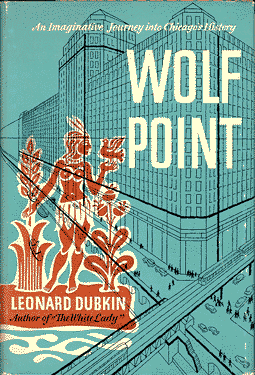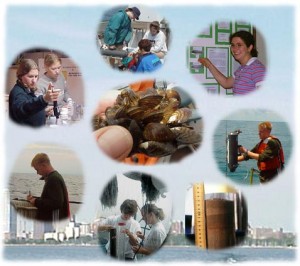
As a literary critic, one recognizes the rare privilege in discovering an obscure yet talented writer — whether someone living or from the distant past — and reintroducing that person to a contemporary readership. Such was my opportunity a few years ago when I came across a book by Leonard Dubkin (1905–72) in a used bookstore in Chicago’s Rogers Park neighborhood. That serendipitous finding was the seed of a research project on Dubkin, a self-taught naturalist and longtime Chicago journalist, which culminated this month in the publication of my essay, “Empty Lots and Secret Places,” in the Winter 2011 issue of Interdisciplinary Studies of Literature and the Environment. As I write in the article’s introduction:
Dubkin [was] an urban naturalist and Chicago writer who immersed himself in Chicago’s natural history long before the recent rediscovery of urban environments by literary critics and nature writers. Like the [small city] park that commemorates him, Dubkin has been easy to overlook. Although he penned several books on nature in the city, wrote a widely read nature column for Lerner Newspapers in Chicago for many years, and published frequently in major national newspapers such as the Chicago Tribune and New York Times, Dubkin today is a virtual unknown.
Yet the recent resurgence of interest in the environmental issues and history of urban areas in general and the Chicago region in particular makes Dubkin’s work important. His writings are a rich historical document of urban nature as well as a detailed exploration of one person’s engagement with the “wild” elements of the city: plants, birds, insects, mammals, and various representatives of the human population. Dubkin has much to say not just to Chicagoans interested in their city’s environment or to aficionados of nature writing, but to all who are engaged in the conservation, preservation, restoration, and representation of urban nature. He speaks, as well, to city and suburban dwellers who feel alienated from an idealized nature they imagine exists only “out there,” away from urban sprawl and congestion.
Dubkin’s essays and books extol the value of the commonplace and mundane for exploring biological adaptation and ecological complexity, illustrate the rewards of patient observation of and direct experience with natural phenomena, and explore the inescapable interconnection of humanity and nature in the urban landscape.

I frequently teach selections from Dubkin’s books in my humanities seminar at Roosevelt University, and students respond enthusiastically to his work. While my essay is the first scholarly treatment of Dubkin’s work, short excerpts from his books have been included in two recent literary anthologies: Terrell Dixon’s City Wilds: Essays and Stories about Urban Nature (2002) and Joel Greenberg’s Of Prairie, Woods, and Water: Two Centuries of Chicago Nature Writing (2008). These books not only signal the growing interest in the genre of urban environmental writing, but also illustrate the significance of Dubkin’s work within national literary contexts as well as the environmental history of the Chicago region.
Appreciations and thanks go to Terrell Dixon, professor of English at the University of Houston and colleague in the Association for the Study of Literature and Environment, who back in 2005 strongly encouraged me to follow my interest in Dubkin’s writings. Roosevelt University supported my work with a faculty research and professional development leave in the spring of 2007. Last but far from least, Chicago Jewish News journalist and editor Pauline Dubkin Yearwood granted me two interviews and access to a treasure trove of her father’s documents and letters that greatly informed and inspired my research.


